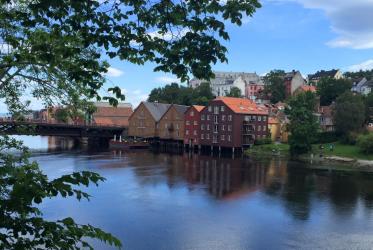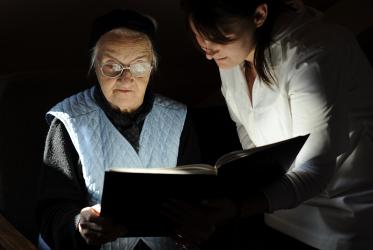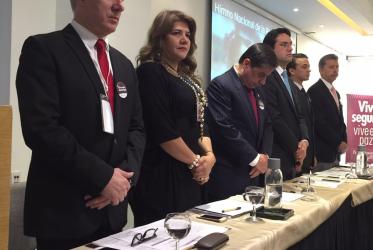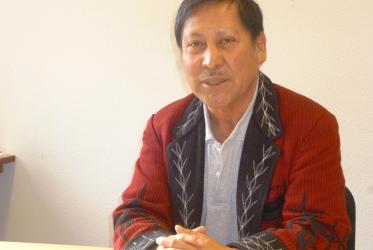Displaying 21 - 40 of 114
Religious leaders as agents of peace in the Americas
02 March 2016
United Bible Societies: A world fellowship serving the churches
16 December 2015
Land rights focus of panel discussion
17 November 2015
Los derechos sobre la tierra tema de una mesa redonda
17 November 2015
Faith organizations to play crucial role in Colombia peace process
09 November 2015
Conflict reporting fails women
06 October 2015
Un misionero en Latinoamérica
05 November 2013
Una voz de América Latina por la paz y la justicia económica
31 October 2013
Guatemala’s indigenous peoples demand protection of their rights
16 October 2013







